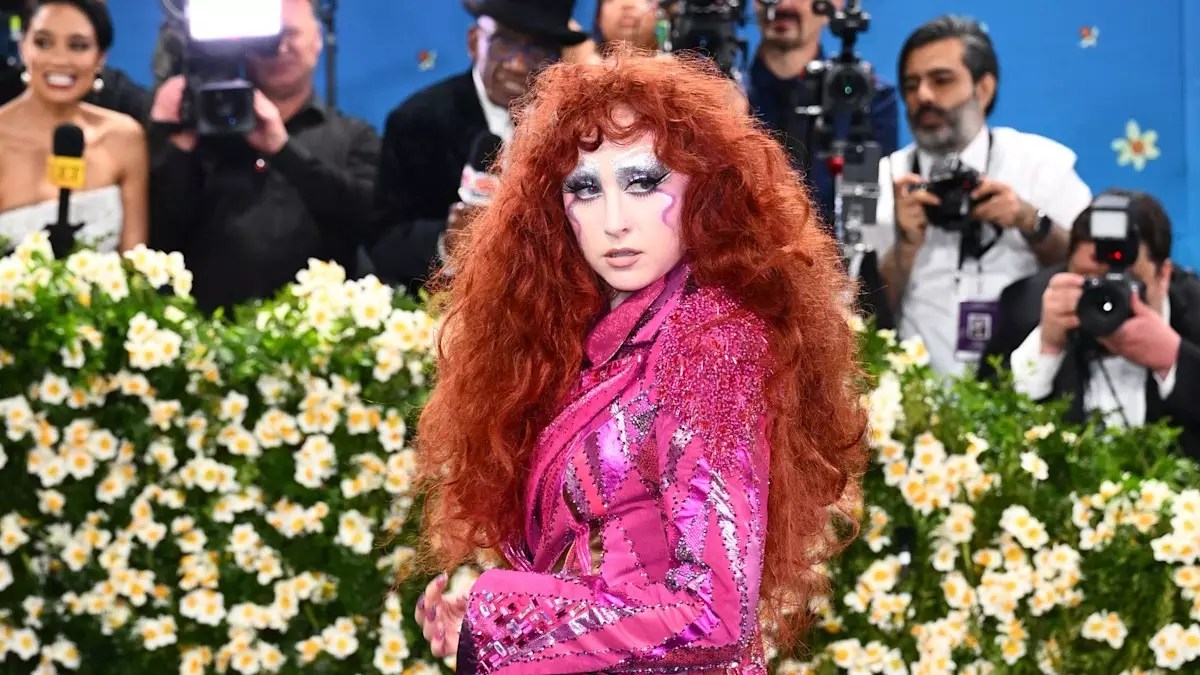In the realm of modern music, few artists have experienced the meteoric rise that Chappell Roan has. Born Kayleigh Rose Amstutz in a humble southern Missouri town, she embarked on her musical journey largely thanks to the encouragement of her high school music teachers. Within months of stepping into the limelight, she transitioned from an indie artist to a celebrated headliner, commanding slots at sold-out festivals across the nation. Her debut album, “The Rise and Fall of a Midwest Princess,” propelled her into the pop music stratosphere, marking her as an artist to watch in an industry often ruthless in its demand for conformity.
But fame comes with its own dark alley of pressures and challenges. As Roan ascends to celebrity status, she confronts an unsettling reality: the need to fiercely defend her personal space and boundaries. This situation is especially acute for those in the spotlight—artists are often perceived as public property, leaving their personal autonomy vulnerable to unwanted invasions from fans and media alike. The struggle is real, and Roan has made it explicitly clear that she refuses to tolerate disrespect, signaling a need for change in the music industry.
A Candid Admission: Chappell’s Villain Era
On a recent episode of the Outlaws podcast, Roan made a striking announcement: “If I do not stand up for myself, I will quit.” This declaration resonated deeply with anyone who has grappled with the complexities of acclaim yet yearns for basic respect. She spoke of entering a “villain era,” a period marked by her refusal to shy away from controversy and confrontation when unfairly treated. Roan’s candid acknowledgement of her limits is empowering; she emphasizes the fundamental right every artist has to personal safety and mental well-being.
It’s noteworthy that her rise has not merely been about musical success; it has been a personal journey of self-advocacy and boundary-setting. Chappell’s determination to speak out against invasive behaviors reflects a growing trend among emerging artists who are reshaping the narrative of what it means to be a performer in today’s world. The stark reality is that when the spotlight is on, the lines of what is acceptable behavior often blur, leading to significant mental health repercussions for many artists.
Redefining Celebrity Interactions
Roan’s experiences underscore an important societal question: what defines celebrity? In an age saturated with social media interactions, fans frequently feel an unqualified connection to their favorite artists, often disregarding traditional boundaries. This phenomenon is not just a nuisance; it fundamentally challenges how artists and audiences engage. Chappell’s proactive approach to reclaiming her boundaries serves as a powerful reminder that respect and consent shouldn’t be optional in any interaction, particularly when fame is involved.
What sets her apart is her refusal to conform to the expectations of a compliant celebrity. She has taken to red carpets not only to showcase her artistry but also to call out the disrespect from various quarters, such as rude photographers and intrusive fans. Her multiple “villain eras” reflect a necessary cultural shift within the industry where artists voice their discomfort and stand firm against unwanted behavior.
Advocacy Beyond Music
Chappell Roan is not only a musician but also a willing advocate for broader social issues, particularly those affecting the queer community. Her decision to decline an invitation to the White House’s Pride celebrations illustrates her awareness of governmental failures concerning queer rights. Her dedication to using her platform to raise awareness about mental health and safety speaks to an artist who understands that advocacy is an extension of her artistry.
As she continues to embrace her complex identity and explore creative avenues—most recently with her single “The Giver,” a tribute to lesbian relationships—Roan paints a picture of an artist who is deeply rooted in authenticity and personal truth. Her stardom is not merely defined by commercial success but rather by a determined resolve to create a safe space where her persona is both celebrated and respected.
Chappell Roan stands as a fierce and unapologetic voice in the music industry. Her journey emphasizes the necessity for change and the enduring power of self-advocacy. As she navigates the tumultuous waters of fame, her insistence on respect and boundaries will undoubtedly influence the future of how artists engage with their fan base and society at large.


Leave a Reply